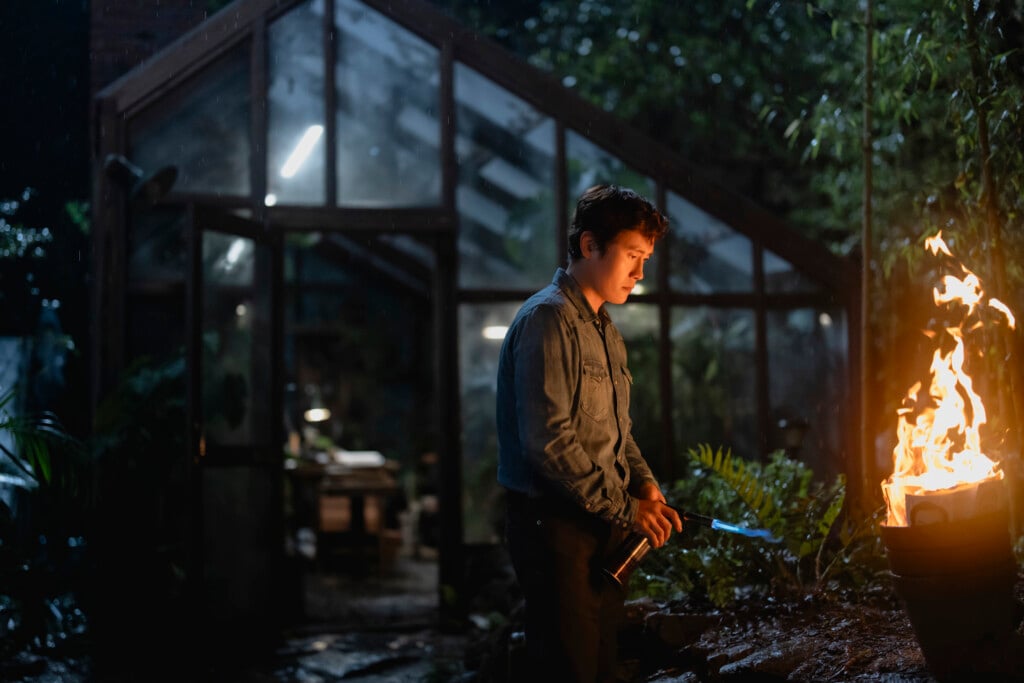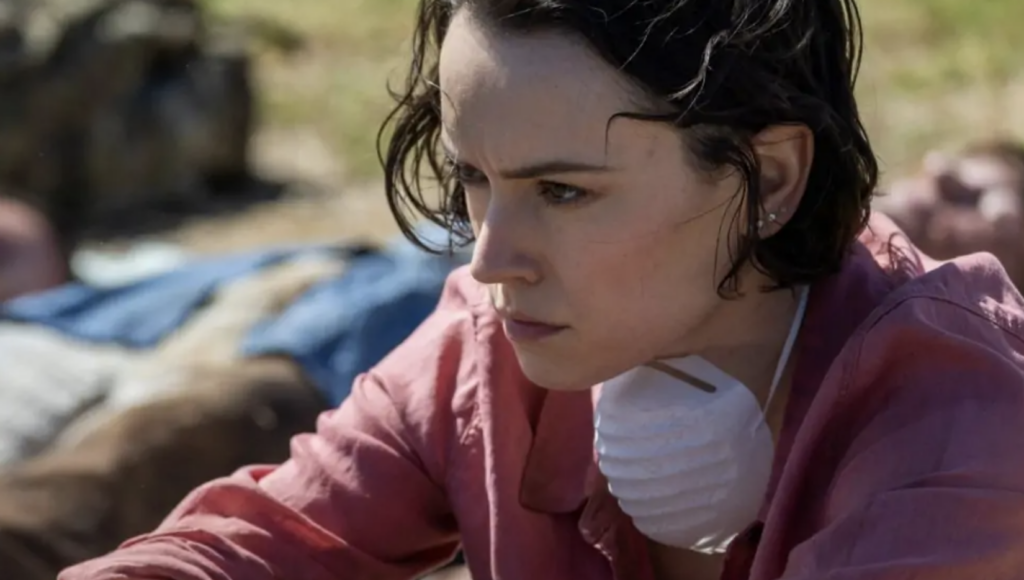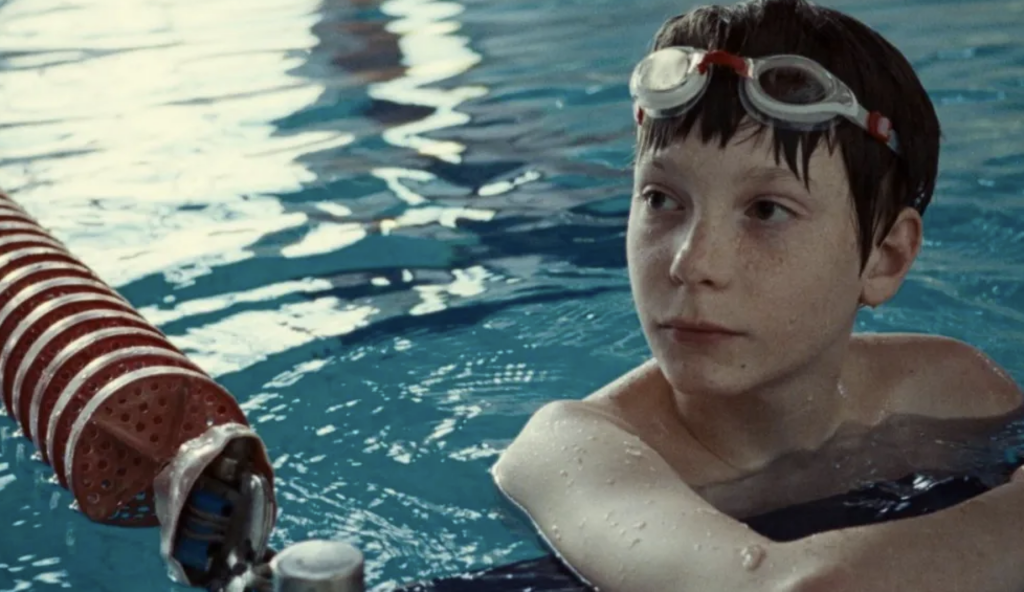Chicago Film Festival 2023: Yorgos Lanthimos’ Poor Things is a steampunk absurdist romp through female autonomy
Poor Things would make a great double-bill with Barbie.

Ramy Youssef and Emma Stone in Poor Things. // Photo by Yorgos Lanthimos. Courtesy of Searchlight Pictures. © 2023 20th Century Studios All Rights Reserved.
Contrary to what the title suggests, the eponymous Bride of Frankenstein appears for just four minutes in James Whale’s classic 1935 monster movie. Although she was created as a mate for Frankenstein’s lonely monster at the behest of a power-hungry scientist, the newborn Bride rejects her would-be husband with a shriek of defiance. The Bride’s brief arc is a remarkably modern one, until her new life is cut short when Frankenstein’s monster kills them both in an avalanche of rubble after despondently declaring: “We belong dead.”
Yorgos Lanthimos’ Poor Things opens with a faceless woman throwing herself from a bridge into the waves below. But unlike the Bride, this isn’t the end for her. Her body is salvaged by mad scientist Dr. Godwin Baxter (Willem Dafoe), who resurrects her as his latest experiment. Reborn with the mind and gait of a child in an adult body, the woman—now christened Bella Baxter (Emma Stone)—isn’t doomed to a life of monstrosity. Instead, her ensuing romp of self-discovery grants her a blank slate, her learning what it means to be human, imbuing Lanthimos’ trademark biting eccentricity with a sunny, unexpected humanism.
Loosely based on Alasdair Gray’s 1992 novel of the same name, the film adaptation transposes its early 20th Century Scottish tale onto a steampunk reimagining of 1890s London. A reclusive man scarred by his own father’s cruel experiments, Godwin is surprised to find that he feels parental affection for Bella, who fondly refers to him as “God.” Although she initially has the faculties of an ordinary toddler, Bella’s accelerated growth soon leaves her with a hunger for the ways of the world that her cloistered home and an engagement to Godwin’s puppy-eyed assistant Max (Ramy Youssef) simply don’t provide.
So when a sleazy lawyer named Duncan (Mark Ruffalo) offers to help Bella ditch polite society for a globe-trotting adventure, how can she resist?
As our heroine sets off, the film’s sumptuous design elements truly get to shine. The early London scenes are filmed almost entirely in black-and-white with plenty of Lanthimos’ beloved fisheye lens, but Bella’s adventures across a topsy-turvy rendition of Europe are rendered in acidic Technicolor and gleefully artificial backdrops.
In a recent press conference, production designers James Price and Shona Heath revealed that Poor Things’ color palette was inspired by the blood, bile, and guts of old anatomical illustrations that wouldn’t be out of place in Godwin’s laboratory. Flouncing about her Bosch-esque surroundings in a sickly pastel wardrobe of period costume-meets-space-age finery, Bella’s world blends the grotesque and the doll-like in a manner befitting her off-kilter journey.
Since emerging as a savant of the Greek Weird Wave, Lanthimos has shown great talent for spinning the innate awkwardness of human relationships and sexuality into a distinct brand of demented comedy. That’s particularly true in Poor Things, which grants Bella’s boundless sexual curiosity the same importance as her burgeoning intellectual pursuits. During an overwhelmingly sexless era of Hollywood in which even the most minute sex scenes are interrogated by Very Online puritans, Bella’s embrace of her beloved “furious jumping” feels like a minor miracle.
The overall tone remains relatively light, even as Bella butts up against the cruel, patriarchal world whose rules she willfully ignores. Thankfully, the movie’s pathos rests squarely on Stone’s mesmerizing shoulders. As outlandish as the story often is, Bella feels like a genuine flesh-and-blood creation, her childish physicality steeling into an unflinching stare as she matures.
Throughout it all, Stone’s impeccably blunt comic timing and warmth add undeniable emotionality that’s typically missing in Lanthimos’ more typical fare (Long-time Lanthimos fans will be happy to know Stone is supported by a uniformly game ensemble who seem delighted to embody Lanthimos’ signature deadpan milieu).
Poor Things isn’t shy about the feminist allegories embedded in its genre trappings, even if its more pointed social commentary can feel a bit redundant as the film meanders through the more rickety final act of its 140-minute runtime (strangely, it would make the perfect double feature with Greta Gerwig’s Barbie).
Like any good coming-of-age story, Poor Things eventually comes full circle, as Bella confronts the darker realities of her creation and looks upon her fragile maker not as God, but as a flawed and very mortal man. The film ends on a note of bizarro optimism that feels like a step forward in Lanthimos’ career. The Bride may have met an unfairly grisly end, but reboot culture can leave Bride of Frankenstein be — Poor Things is not only a worthy spiritual successor but a delightful invention all its own.




